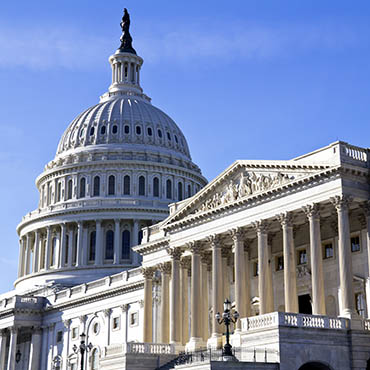Clock is ticking on possible shutdown
A familiar scenario looms as Congress moves to pass a short-term funding bill before the fiscal year draws to a close.

The government's budget year expires on Sept. 30, Congress hasn't enacted any funding bills for the new fiscal year, Capitol Hill troublemakers and interest groups have asserted non-negotiable demands, and the ominous prospect of a federal shutdown looms. The scenario is familiar but real.
Cooler heads usually prevail -- especially a month before a presidential election. But there's been enough experience with failure to reach agreement on Capitol Hill that caution is warranted. With the real possibility that a final deal won't be reached by Sept. 30, Congress faces the dreaded possibility of a weekend session to ensure that federal agencies open their doors on Oct. 3.
Congressional leaders of both parties are working to resolve the deadlock, with help from the Appropriations Committee in each chamber. Senate Majority Leader Mitch McConnell (R-Ky.) hopes to pass his mostly "clean" bill that would extend all government operations until Dec. 9, under the assumption that Congress would return in a lame-duck session for more detailed action on spending bills.
For now, the most pressing emergency add-on to the current continuing resolution is long-delayed funding for efforts to protect against the Zika virus.
"It's a clean bill because of what it doesn't have: controversial riders from either party. Zip. Zero. Zilch," McConnell wrote in a Sept. 23 article for Roll Call. "It's a good bill because of what it does have. It contains funding for all current government operations at agreed-upon, bipartisan spending levels and under the terms and conditions President Obama signed into law last December and that more than 30 Senate Democrats supported."
But senior Democrats are dissatisfied -- with what isn't in the bill and what is. Many lawmakers want additional funding to help clean lead from the water supply in Flint, Mich. And aides to President Barack Obama have objected to the fact that McConnell's proposal extends the current prohibition on the Securities and Exchange Commission's ability to impose new restrictions on corporate spending for elections.
Democrats have some leverage -- not only with Obama's threatened veto, but also because frequent dissension in Republican ranks has generally made it difficult for the majority party to act on its own, especially in the House. And Democrats welcome the prospect of pre-election turmoil in the Republican-controlled Congress.
Senate Minority Leader Harry Reid (D-Nev.) has already taken procedural steps that stymied McConnell's earlier plan to complete the spending bill last week and leave town until after the election.
"We're in no hurry to go anyplace, OK?" Reid told reporters last week.
McConnell has scheduled a procedural vote for the afternoon of Sept. 27 that would permit Senate action on the spending bill without an opportunity to consider amendments unless he agrees. If he gets his way, that would send the Senate-passed bill to the House later in the week, with a virtual take-it-or-leave-it choice.
But some Republicans have their own wish list. Their most prominent effort appears to be the initiative by Sen. Ted Cruz (R-Texas) to block the long-standing plan for the United States to formally transfer internet naming authority to the global Internet Corporation for Assigned Names and Numbers. Coincidentally, that deadline is also Sept. 30.
Cruz has demanded a delay because of his concerns about the loss of internet freedom. Republican presidential nominee Donald Trump publicly endorsed the effort last week. Cruz, who was a leader in the 2013 government shutdown, has said that prohibition of the "Internet giveaway" should be added to the spending bill. McConnell's bill does not include such a provision.
Some of these legislative issues could be handled in the planned omnibus spending bill, which would face a Dec. 9 deadline. That post-election scenario might be highly optimistic given the nastiness and uncertain outcome of the current presidential campaign, plus the few remaining weeks before the holidays. But in deadline-prone Congress, it's premature to worry about that problem.
NEXT STORY: OMB Will Revamp Payment Accuracy Website





